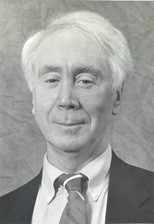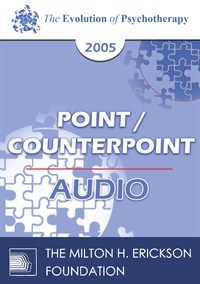EP05 Point/Counterpoint 06 - Positive Boundary Crossings in Psychotherapy - Arnold Lazarus, PhD
- Average Rating:
- Not yet rated
- Topic Areas:
- Point/Counterpoint Sessions | Psychotherapy | Therapeutic Relationship | Therapist Development
- Categories:
- Evolution of Psychotherapy | Evolution of Psychotherapy 2005
- Faculty:
- Arnold Lazarus, Ph.D. | Ernest Rossi, PhD
- Duration:
- 1 Hour 19 Minutes
- Format:
- Audio Only
- Original Program Date:
- Dec 07, 2005
- License:
- Never Expires.
Description
Description:
Boundary crossings can be extremely helpful, whereas boundary violations are usually harmful. Therapy is often shortchanged by the tendency to practice defensively. It is imperative not to exploit, disparage, abuse or harass a client. We also must appreciate the significance of confidentiality, integrity, respect and informed consent. All the rest of the ethical rules, codes and regulations are negotiable. Thus, non-sexual dual relationships often can enhance the process and outcome of psychotherapy.
Educational Objectives:
- To describe what comprises a good working alliance.
- To describe one way to build true flexibility into the therapeutic relationship.
*Sessions may be edited for content and to preserve confidentiality*
Credits
Faculty

Arnold Lazarus, Ph.D. Related Seminars and Products
Arnold A. Lazarus, Ph.D., was Distinguished Professor at the Graduate School of Applied and Professional Psychology at Rutgers University. Lazarus served on the editorial boards of ten professional journals. He was president of the Association for Advancement of Behavior Therapy and received the Distinguished Service to The Profession of Psychology Award from the American Board of Professional Psychology. His Ph.D. was granted in 1960 from the University of the Witwatersrand, Johannesburg, South Africa. He has authored four books; co-authored, edited, or co-edited seven; and authoered or co-authoered more than 150 professional papers and chapters.

Ernest Rossi, PhD Related Seminars and Products
Ernest L. Rossi, PhD, is an internationally renowned therapist, teacher and pioneer in the psychobiology of mind-body healing. The author of more than 24 professional books, Dr. Rossi worked with Milton Erickson for eight years and co-authored three classic volumes on therapeutic hypnosis with him. Rossi has also edited four volumes of Erickson's Collected Papers and four volumes of Erickson's Seminars, Workshops and Lectures. He has been conducting research in the psychosocial genomics of ultradian rhythms and their relation to mind-body healing and psychotherapy for over three decades.


